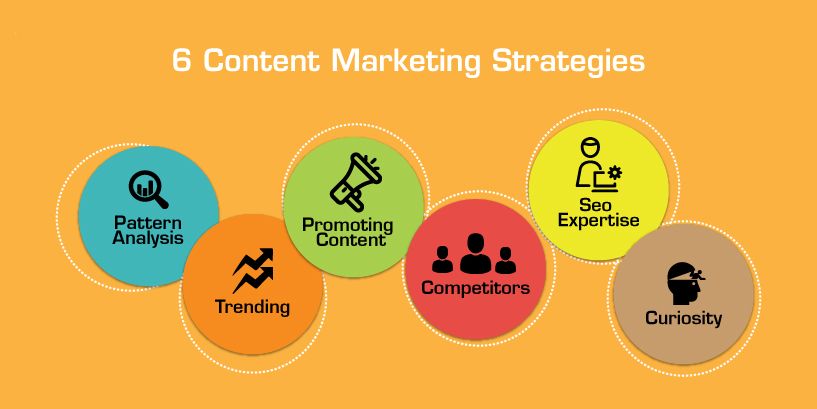content Marketing
Content marketing is the development and distribution of relevant, useful content—blogs, newsletters, white papers, social media posts, emails, videos, and the like—to current and potential customers. When it’s done right, this content conveys expertise and makes it clear that a company values the people to whom it sells. The consistent use of content marketing establishes and nurtures relationships with your prospective and existing customers.

Content marketing is the development and distribution of relevant, useful content—blogs, newsletters, white papers, social media posts, emails, videos, and the like—to current and potential customers. When it’s done right, this content conveys expertise and makes it clear that a company values the people to whom it sells.
The consistent use of content marketing establishes and nurtures relationships with your prospective and existing customers. When your audience thinks of your company as a partner interested in their success and a valuable source of advice and guidance, they’re more likely to choose you when it’s time to buy.
Types of Content Marketing

1. Podcasts

4. Videos

2. Social Media

5. News Letter

3. Blogs

6. E-Book
7 Steps To Develop a Content Marketing Strategy

- 1. Determine the Purpose of Your Content Marketing Strategy
- 2. Understand Your Audience
- 3. Define Key Performance Measures
- 4. Examine Your Existing Content
- 5. Align Your Content So It Answers Questions
- 6. Identify Content Distribution Channels
- 7. Develop a Content Calendar
Why is content marketing important?
- 1. Educate leads and prospects about your product and services. Content marketing allows businesses to promote themselves while offering tangible value to an interested audience, which can increase brand awareness and engagement. At the same time, businesses can subtly promote their products and services, educating more people about their offerings.
- 2. Increase conversions. Content marketing works because it helps brands show that they care about and understand customer needs, which can translate into higher conversion rates.
- 3. Build relationships with customers. Few people are ready to buy something when they first learn about your business. Content marketing makes it possible to build relationships and deepen trust with your audience, which can encourage them to eventually convert.
- 4. Demonstrate how your product or service solves a pain point. With a solid content marketing plan, you can create content tailored to each customer’s pain points. Blog posts, demo videos, and customer testimonials make it easier for businesses to offer in-depth explanations of how their products or services help customers.
- 5. Increase visibility. Content marketing connects your business with more potential customers while making your business more renowned in your industry. Businesses can get the word out about their brand by creating consistent, high-quality content that generates more traffic from search engines.
- 6. Improve authority. Authority is the key to becoming an industry leader and increasing sales. Build trust by creating helpful, high-quality content that positions your business as a thought leader in your sector.
- 7. Foster loyalty. Regularly sharing high-quality, compelling content makes it possible for businesses like yours to deepen relationships with customers. Over time, this can ultimately boost the loyalty these customers feel toward your brand.
